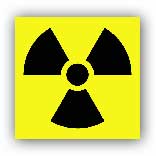|
Cancer patients are set to benefit from a
revolutionary new treatment that will aim to shorten
treatment times, reduce side-effects and improve
their chances of beating the disease.
The Christie, part of the Manchester Cancer Research
Centre, has been selected to house an MRI-guided
radiation therapy system, of which there are
currently just two research systems in the world.
The state-of-the-art radiotherapy machine uses
imaging technology to better and more safely target
radiation beams to the site of a tumour.

The development comes after the specialist cancer
centre joined an international consortium of leaders
in radiotherapy delivery. It will now work with the
manufacturer Elekta to help develop the technology
and methods of use which is expected to be available
for patients in the next few years.
Current radiotherapy is hampered by the fact that
cancers move and shrink during treatment, meaning
that some radiation doses may not be accurately
delivered to the target tumour.
The new system will combine a state-of-the-art
linear accelerator, sophisticated planning software
and MRI imaging system, allowing highly detailed
images to be taken of a tumour and surrounding
tissue during treatment. These images let doctors
visualise the cancer in real-time and adapt a
patient’s treatment plan, taking shrinkage or
movement into account and improving the accuracy and
effectiveness of radiotherapy.
The tumour-tracking ability of the MRI-guided
radiation therapy system will be particularly useful
in lung cancer and pelvic tumours, such as bladder,
prostate and bowel cancer, where the cancer moves.
By being able to adapt radiotherapy treatment to
tumour movement, we can better target the radiation
to the cancer and avoid hitting healthy tissue. This
will mean fewer side effects for cancer patients.
Dr Ranald Mackay, Director of Medical Physics and
Engineering at The Christie, said: “The Christie
partnered with Elekta in a consortium that developed
image guided radiotherapy. That is now recognised as
the standard of care. The MRI-guided radiation
therapy system represents the next step change in
improving radiotherapy technology. By joining this
consortium we will be able to ensure that cancer
patients in the UK continue to receive the most
advanced treatments.
The Christie is the seventh member to join the
research consortium, which also includes University
Medical Center Utrecht in the Netherlands, the
University of Texas MD Anderson Cancer Center in
Houston, The Netherlands Cancer Institute in
Amsterdam, Sunnybrook Health Sciences Centre in
Toronto and The Institute of Cancer Research in
London. The collaboration is being led by Elekta, a
Swedish manufacturer of radiotherapy equipment, and
Philips, a healthcare and electronics company based
in the Netherlands.
Niklas Savander, Elekta President and CEO, said:
“The Christie was an essential participant in the
project 14 years ago that laid the foundations of
the use of cone beam computed tomography (CBCT) to
improve radiotherapy delivery.
For more information
Manchester Cancer Research Centre
MDN |